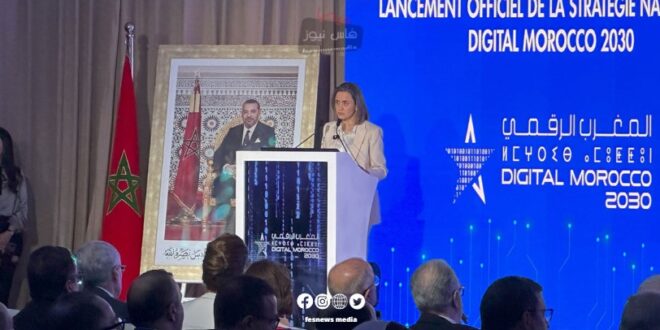Morocco’s economy is undergoing a significant transformation driven by the increasing reliance on the digital economy as a means to boost economic growth and create new job opportunities. With the rapid spread of modern technologies across various sectors, the digital economy opens broad horizons for improving the business environment and generating new opportunities for citizens, especially amid the economic challenges facing many countries.
The Digital Economy in Morocco: A General Overview
In recent years, Morocco has witnessed notable progress in adopting digital technologies, driven by government strategies aimed at promoting the digital economy and expanding investment in this field. Global reports, such as those from the World Bank, have shown that Morocco is making significant strides in areas like e-commerce, technological innovation, and digital financial services.
Contributions of the Digital Economy to the Labor Market
The digital economy is considered one of the main engines for creating new jobs in Morocco. It helps generate employment in various sectors, including programming, digital marketing, data analysis, digital logistics, and other fields that rely on information technology. According to a report by the Organisation for Economic Co-operation and Development (OECD), economies that adopt modern technologies tend to create new and diverse jobs in non-traditional tech sectors.
The Tech Sector and Digital Projects
Through government initiatives such as “Digital Morocco 2020” and “Digital Generation,” the private sector has been encouraged to expand its digital activities. This includes the creation of startups in the tech field and small businesses that rely on the internet, leading to both direct and indirect job creation in areas like programming, app development, and data analysis.
Job Opportunities in E-commerce
The growth of e-commerce has opened new employment avenues in Morocco. According to a 2024 study by the Central Bank of Morocco, the number of Moroccan companies operating online is steadily increasing, creating job opportunities in areas such as website management, remote customer service, and digital marketing. With ongoing shifts in consumer behavior, job opportunities in this sector are expected to grow further.
The Role of Digital Education and Training
Digital education has become one of the key pillars in training Moroccan youth. Various initiatives, such as the “Mohammed VI Academy” and the “Digital University,” have launched training programs in IT, programming, and cybersecurity. These programs help prepare young people for the digital job market, where demand for such skills is expected to grow as the number of digital companies increases.
Challenges and Future Opportunities
Despite the vast opportunities offered by the digital economy, Morocco faces challenges such as internet accessibility in remote areas and the need to develop youth skills in modern technology fields. However, the Moroccan government is working to strengthen the digital infrastructure, especially in rural areas, through projects like “Internet for All,” which aims to improve internet connectivity and expand its use across the country.
Future Outlook
According to a 2023 report by the World Economic Forum (WEF), the digital economy is expected to significantly contribute to creating new jobs in Morocco, while enhancing the national economy’s ability to adapt to global technological changes. By 2030, the number of jobs that rely on digital technologies is expected to rise, helping reduce unemployment rates, especially among youth.
The digital economy in Morocco is one of the most important drivers of economic growth and job creation across various sectors. The continued expansion in the use of technology and innovation in different areas will strengthen Morocco’s role in the digital economy both regionally and globally, opening the door to new employment opportunities and ensuring sustainable growth.
Source: Fes News Media
 فاس نيوز ميديا جريدة الكترونية جهوية تعنى بشؤون و أخبار جهة فاس مكناس – متجددة على مدار الساعة
فاس نيوز ميديا جريدة الكترونية جهوية تعنى بشؤون و أخبار جهة فاس مكناس – متجددة على مدار الساعة













